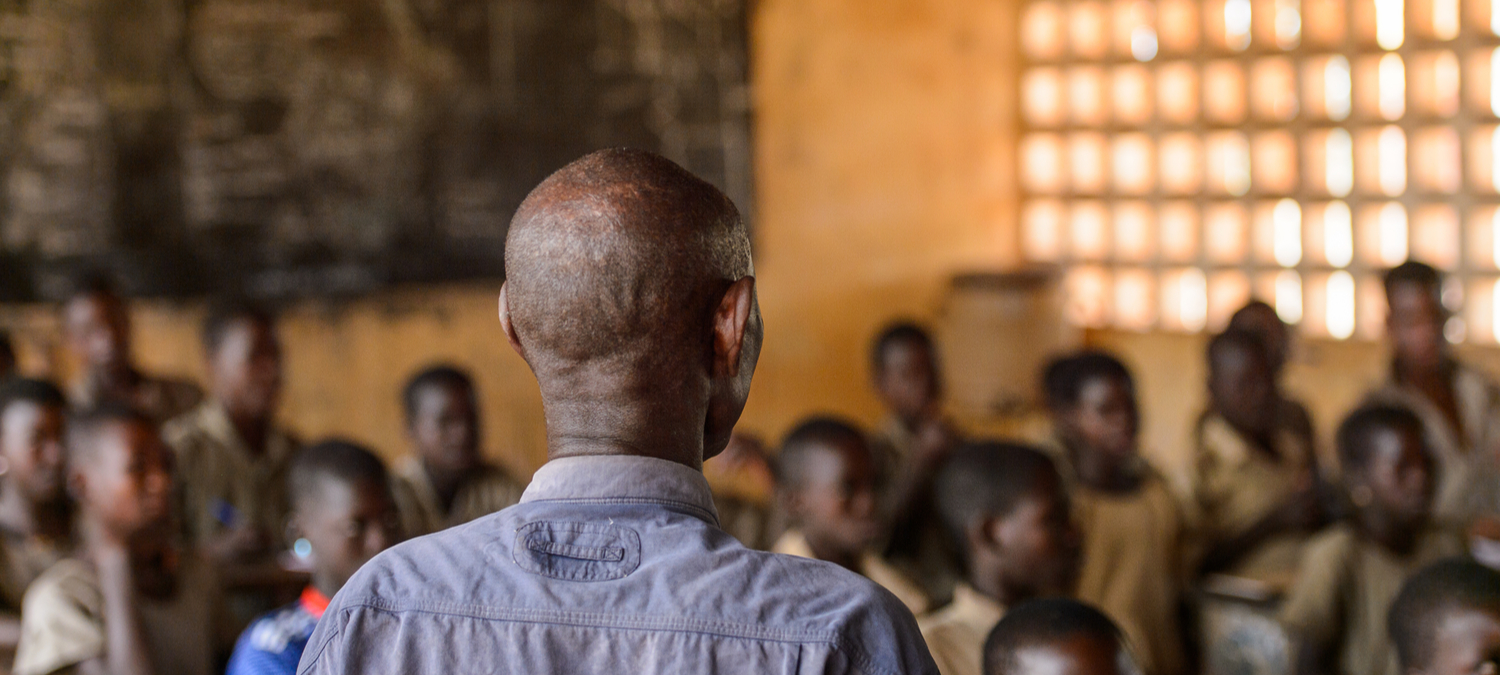Recent estimations from UNESCO’s Institute of Statistics indicate that almost nine out of ten children in Sub-Saharan Africa, between the ages of six and fourteen, are not achieving minimum proficiency levels in reading and mathematics at the end of primary school and lower secondary school. To address this learning crisis, in June 2016, the Regional Coordination Group on SDG4-Education 2030 in West and Central Africa created the Teaching and Learning: Educators’ Network for Transformation (TALENT).
Coordinated by the UNESCO Regional Office in Dakar, with support from a steering group comprising the Association for the Development of Education in Africa, the Africa Network Campaign on Education For All, the Conference of Ministers of Education of French-Speaking Countries (CONFEMEN), the Network for Excellence in Higher Education in West Africa (REESAO) and UNICEF, TALENT is represented by a working group whose objective is to share experiences, expertise and knowledge on initiatives that improve teaching and learning in Sub-Saharan African countries.
Three areas of action have been identified:
- Promoting dialogue on teaching and learning;
- Sharing knowledge and experiences through a dedicated online platform and via workshops;
- Creating consensus and political advocacy between the member countries and the network’s regional stakeholders in order to integrate and align the priority themes for quality reform.
TALENT’s four priority action themes
Within the monitoring framework for education quality indicators of Sustainable Development Goal n°4, TALENT has four priorities:
- Pre- and in-service teacher education at all levels of basic education (preschool, primary, and lower secondary school);
- Proficiency in basic reading, written and oral comprehension, and mathematics in primary school and lower secondary school;
- Strengthening national assessment systems of pupils’ learning outcomes;
- Preparing pupils for primary school by providing universal access to one year of pre-school education.
Creating space and time to exchange information and experiences
Since its launch, TALENT has focused its activities on national learning assessment systems as a tool to support quality education, professional standards and career paths within the teaching profession, as well as the teaching and evaluation of 21st-century skills.
TALENT organizes workshops bringing together regional and international organisations to discuss these issues and successful initiatives. The presentations and diagnostic tools used during the workshops are available on the network’s online platform.
Improving the quality of education
At the network’s two-day inauguration workshop, around twenty delegations from the Economic Community of West African States and the Economic Community of Central African States met to share tools possible responses to address the challenges of reform and management of teacher careers. Building on this workshop, a study on professional standards within the teaching profession will soon be published by the UNESCO Regional Office in Dakar. It will provide Ministries with an analytical framework and tools to support the reform of their training systems, and promote the professionalization of the teaching profession.
Strengthening national assessment systems
Similarly, during its second workshop, held in December 2017, 17 ministerial delegations were invited to evaluate their national learning assessment system using the World Bank SABER (Systems Approach for Better Education Results) analytical framework. This identified the support required by the countries in the region, namely: training teachers to integrate assessment into their teaching practices, designing tools for assessing 21st-century skills (questionnaires and oral tests), and on the administration, analysis and strategic use of data for educational reforms.
These findings informed the design of a capacity-building support programme, which, with funding from the Global Partnership for Education (GPE), will provide senior ministry officials with tools and methods to strengthen their assessment and information systems, as well as guide quality teaching and learning quality reforms.
In July 2018, TALENT organized a regional capacity building workshop in Dar-es-Salaam on aligning curriculum, teacher training and learning assessments, the first in a series of capacity-building activities on national learning assessments systems. An online training programme is available to participants on the online Open Tanzania University platform. The sessions will train officials to undertake a self-evaluation of their national learning assessment system.
Promoting the teaching and evaluation of 21st Century skills
More recently, via the Optimizing Assessment for All initiative, the Brookings Institution in partnership with TALENT and the GPE launched a study on assessing 21st-century skills, which aims to identify tools and assessment items (national tests or in-class tests) for these skills in a sample of schools for nine countries in the region (Chad, Côte d’Ivoire, Democratic Republic of Congo, Gambia, Kenya, Lesotho, Mali, Senegal and Zambia). The results of this study will be presented at the end of 2018 to all members of the TALENT network, and will help identify ways of integrating these innovative tools into assessment systems.
Regional advocacy for improving learning in Africa
TALENT published its first advocacy document on the learning crisis in Africa on World Teachers’ Day, 5 October, calling for urgent action from governments to improve the quality of learning. This document, originally presented in April 2018 at the Pan-African High-level Conference on Education in Nairobi, calls for urgent action from governments to improve the quality of learning through the four priorities identified by TALENT.
Through its activities, TALENT reinforces synergies and dialogue between educational stakeholders committed to resolving the learning crisis. Its members share their experiences and expertise to improve the coherence and efficiency of educational reforms in West and Central Africa.
To learn more, please contact Valérie Djioze (v.djioze@unesco.org), TALENT coordinator and programme specialist at the UNESCO Regional Office in Dakar.
The member countries are: Angola, Benin, Burkina Faso, Burundi, Cape Verde, Central African Republic, Chad, Comoros, Côte d’Ivoire, Democratic Republic of Congo, Equatorial Guinea, Ethiopia, Gabon, Gambia, Guinea, Guinea Bissau, Kenya, Lesotho, Liberia, Malawi, Mali, Mozambique, Niger, Nigeria, Republic of Congo, Sao Tome and Principe, Senegal, Sierra Leone, Somalia, South Sudan, Tanzania, Togo, Uganda, Zambia, Zimbabwe.


